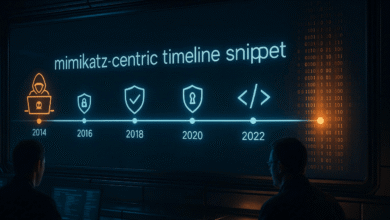ingebim and the Future of Digital Transformation in Construction and Infrastructure

In the evolving world of engineering and construction, the company ingebim has emerged as a key player in bringing Building Information Modeling (BIM) to life. Established in Chile by visionary engineers, ingebim focuses on reshaping how infrastructure and construction projects are designed, developed, and managed through advanced digital tools. With a commitment to innovation, collaboration, and quality, ingebim has positioned itself as a driving force for digital transformation across Latin America.
The company’s mission is to make BIM technology accessible and effective for both public and private sectors. By integrating 3D modeling, data management, and project coordination, ingebim aims to improve efficiency, reduce costs, and ensure sustainable construction practices.
1. The Foundation and Growth of ingebim
Founded by civil engineers Mario Bravo Ibáñez and Ignacio Barra Rebolledo, ingebim was born from a shared vision to revolutionize the way infrastructure projects are executed. They identified a gap in how technology was being used in traditional construction processes and saw the potential of BIM as a solution to bridge that gap.
Over the years, ingebim has grown from a local consultancy to an influential organization with a strong reputation in digital construction methodologies. Their approach combines deep technical expertise with hands-on experience, enabling them to deliver projects that meet global standards while addressing local challenges.
The founders emphasized continuous learning, which led ingebim to expand its services beyond project execution into education, training, and technological innovation. This holistic approach has made the company a trusted partner for governments, universities, and private firms seeking BIM integration.
2. Core Services Offered by ingebim
ingebim’s service portfolio covers every aspect of Building Information Modeling and digital infrastructure development. Some of the main areas include:
- 3D Modeling and Coordination: Creating accurate and detailed digital representations of structures to detect and eliminate potential conflicts before construction begins.
- BIM Implementation and Consulting: Helping organizations adopt BIM standards and workflows that improve productivity and quality control.
- Model Review and Quality Assurance: Ensuring models comply with international BIM standards and project requirements.
- Digital Twin Creation: Developing virtual replicas of real-world assets that help monitor and manage infrastructure in real time.
- Training and Education: Offering courses and diploma programs that prepare engineers, architects, and construction professionals for a digital future.
By providing such a wide range of services, ingebim ensures that every stage of a project—from planning to operation—is optimized for accuracy, cost efficiency, and sustainability.
3. Notable Projects and Achievements
ingebim has contributed to several impactful projects in Chile and abroad. One of its most remarkable works is the Gemelo Virtual del Parque Bustamante project, a digital twin of an urban park in Santiago. Using advanced laser scanning and point cloud technologies, ingebim recreated the park virtually, allowing planners and citizens to explore it through an immersive digital environment.
Another major success was the BIM Ferroviario project in Etagnières, Switzerland, where ingebim applied BIM techniques for railway modeling. This project demonstrated the company’s capability to handle international infrastructure projects with precision and innovation.
In addition, ingebim has worked on key infrastructure projects like the improvement of access roads in Padre Las Casas and the Concession Ruta 5 Talca-Chillán. These projects highlight the company’s expertise in large-scale transportation and infrastructure development, reinforcing its reputation as a pioneer in digital construction practices.
4. ingebim’s Role in Education and Skill Development
Beyond engineering and project delivery, ingebim has made significant contributions to education and professional development in the BIM field. Recognizing the growing demand for skilled professionals, the company created training programs and diplomas tailored to engineers, architects, and designers.
Through partnerships with universities and institutions such as the Zigurat Institute of Technology, ingebim promotes the adoption of BIM education across Latin America. Its training modules cover a wide range of topics—from the fundamentals of modeling to advanced project coordination—ensuring that participants gain both technical and strategic knowledge.
By empowering professionals with these skills, ingebim strengthens the regional ecosystem of digital construction and fosters a culture of continuous learning.
5. Technology and Methodology Behind ingebim’s Success
The methodology that drives ingebim’s success is centered on digital precision, data integrity, and collaboration. By adopting advanced software and hardware tools, the company creates a digital environment that enhances communication among project stakeholders.
Some of the technologies used by ingebim include:
- Laser scanning for precise spatial data collection
- Point cloud processing for accurate modeling
- Unreal Engine for creating immersive virtual environments
- Data-driven BIM coordination platforms for project management
These tools not only streamline construction workflows but also enable predictive analysis, risk reduction, and real-time project monitoring. With such advanced capabilities, ingebim continues to lead the charge toward smarter and more sustainable construction practices.
6. Challenges and Opportunities for ingebim
Despite its achievements, ingebim operates in an industry that faces several challenges. BIM adoption in Latin America is still in a developing phase, with many organizations resistant to change due to cost, lack of awareness, or technical limitations. However, these challenges also represent opportunities.
ingebim is uniquely positioned to lead the transformation by demonstrating the tangible benefits of BIM, such as:
- Reduced project rework and costs
- Improved communication among teams
- Enhanced sustainability and efficiency
- Better project lifecycle management
By addressing these barriers through education, consulting, and successful case studies, ingebim continues to pave the way for digital adoption across the region.
7. The Future of ingebim in the Global Construction Landscape
Looking ahead, ingebim is set to expand its influence beyond Chile, contributing to the global shift toward digital construction. The rise of technologies like artificial intelligence, automation, and smart city infrastructure aligns perfectly with the company’s long-term vision.
ingebim’s focus on digital twins, real-time data integration, and sustainable solutions will be key in transforming cities and infrastructure systems. As governments and private entities increase investments in modernization, ingebim’s expertise will remain essential in bridging the gap between design and reality.
The company’s continued collaboration with academic and professional institutions will also ensure a steady pipeline of trained professionals ready to meet future challenges.
8. Key Takeaways About ingebim
To summarize some important aspects of ingebim:
- It is a Chilean-based leader in BIM implementation and consulting.
- It offers a complete range of services from modeling to training.
- It has executed major projects in infrastructure and digital twin technology.
- It actively contributes to BIM education and professional development.
- It uses cutting-edge tools to improve efficiency and sustainability in construction.
- It represents innovation and leadership in the field of digital engineering.
9. Conclusion
ingebim stands at the forefront of digital transformation in the construction and infrastructure industries. Through its dedication to innovation, precision, and education, the company has successfully positioned itself as a benchmark for BIM excellence. By merging advanced technologies with practical experience, ingebim has helped reshape how projects are planned and executed, setting new standards for efficiency and sustainability.
As the global construction industry continues to evolve, ingebim’s expertise in digital twins, infrastructure modeling, and BIM consulting will play a crucial role in defining the future of modern engineering. Its ongoing commitment to knowledge sharing and collaboration ensures that the next generation of professionals will continue the journey toward a smarter, more connected, and sustainable built environment.
Frequently Asked Questions (FAQs)
1. What is ingebim?
ingebim is a Chile-based company that specializes in Building Information Modeling (BIM) for construction and infrastructure projects. It focuses on digital transformation by offering services like 3D modeling, project coordination, BIM consulting, and digital twin creation.
2. What services does ingebim provide?
ingebim provides a full range of BIM-related services, including model creation, project management, consulting, quality review, and educational training for professionals who want to learn about digital construction practices.
3. How does ingebim use digital twin technology?
ingebim uses digital twin technology to create virtual replicas of real-world assets. These twins allow engineers and clients to analyze data, monitor project progress, and improve decision-making for infrastructure maintenance and management.
4. Why is ingebim important for the construction industry?
ingebim plays a vital role in modernizing construction by reducing project errors, improving collaboration between teams, and ensuring sustainability through digital innovation. Its work supports smarter and more efficient infrastructure development.
5. In which countries does ingebim operate?
Although ingebim is headquartered in Chile, it has expanded its expertise internationally, including projects in Switzerland and collaborations with global institutes that promote BIM technology and education.



